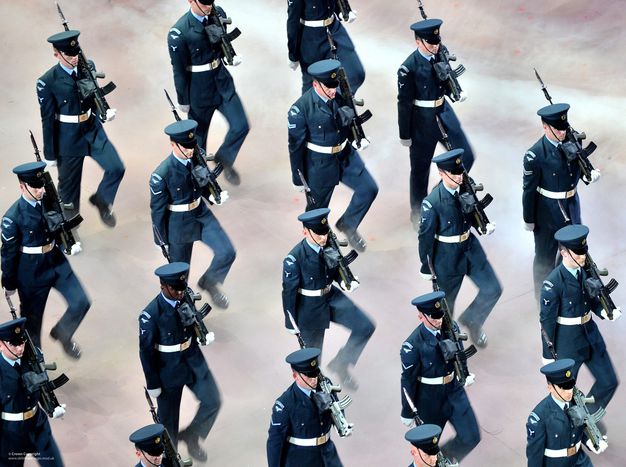
Defence: A crucial boosting pillar for the EU
Published on
57 years after the failure of the ECD, the Europe of defence is under the international spotlights again. First, thanks to the European defence strategy, which contributed to the creation of the European defence agency (EDA) in 2004, the European union reintegrated security issues.
Adopted in 2003 and assessed in November 2006 by both the European Parliament and the Council, this strategy is not a simple political exposure. Following criteria of assessment determined by Member States – you can find the detail in the General report of the Union 2006 – this strategy represents a step forward in the implementation of an integrated defence policy.
Providing for a clause of mutual assistance and introducing the European defence strategy in its new modified Treaty, the June Council consecrated ESPD as the Gordian knot of functional integration.
We finally daresay that unless there is a closer cooperation in the area of budget, industrial and capacity management between Member States, no proactive European defence is possible. That is to say that without common defence, it is Europe as a whole which might disappear of the international political stage. Following 9/11 and the raise of international terrorism, which unbalanced global order and disrupted diplomatic inputs, international organizations had to rethink their roles. So as to find its place among these new struggles for strength and to secure its revival, now the EU has to appear as a unified and reliable actor, able to take certain positions and to act in a global system which has become more and more anxious with the multiplication of crisis.
However, when someone speaks about global security, the Atlantic alliance remains the most preferred sphere of intervention.
Thought the disruptions that we’ve just mentioned forced NATO to go on for an in-depth modification of its mandate and, at the same time, to get out of its initial field of competence, nobody protested. For sure, getting the moral support of the United nations helps avoiding criticisms… Nevertheless, in a context of conflicts’ mutations, why shall this NATO move appear normal but EU’s will to gain power be unbearable ? Why a united European defence and security policy would be less legitimate to answer to regional crisis than an Atlantic Alliance which, obviously, does not possess conceptual and operational tools adapted to this kind of conflict? On the contrary, it seems that Europe would be more adapted because more flexible and loose enough for the EU States also part of NATO to chose which weapon is more appropriate.
Rapid reaction mechanism and Management of civil crisis, major ESDP levers
EU developed its “Defence” pillar empirically, in proposing new concepts of operation and in being present on the ground, and that is its real strength. European defence follows a genuine conceptual and programmatic line, founded on: a deeper civilian and military cooperation, the strengthening of synergies, and competence sharing. This project is drafted in the Headline Goals 2010, a program which proposes many measures to implement these goals: a new common maritime defence policy; a detailed assumption of how rapid reaction forces, battlegroups and other force generation should be deployed in an environment of crisis; etc. Beyond concepts, concrete developments have already been achieved such as the European gendarmerie force and the opening of the European Operation centre last June by the chief of EU military staff, David Leakey. They all prove of EU’s intention to acquire proper strategic and operational tools of its own.
If one may say that on the institutional and communautarian side, Europe seems to run out of steam, one may also look for other boosters.
The need for a diplomacy and the necessity to reaffirm our unity at the international level have revived the European defence policy people’s mind. We should now take advantage of this situation to concretise what is at the core of the EU project: peacekeeping.
Sophie Helbert



